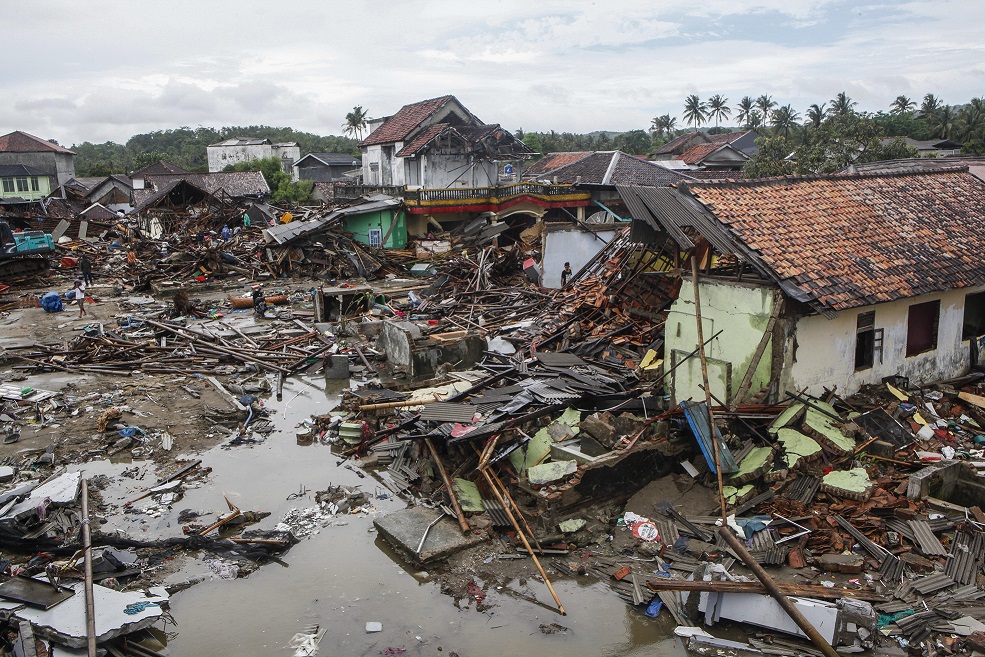The news that Fijians living in Indonesia are safe following a deadly tsunami last weekend is encouraging. This was confirmed by the Ministry of Foreign Affairs.
It said the 42 Fijians living and working in Indonesia were safe.
The tsunami struck several areas of the Sunda Strait including beaches in Pandeglang regency, Serang and South Lampung.
The Fiji Embassy in Indonesia, the ministry said, had been in contact with Fijians who live in Indonesia to offer advice in terms of their safety and continues to monitor the situation there.
International media reported that as many as 373 people have been confirmed dead and more than 1400 people were injured during the disaster and the numbers were expected to rise.
As our report on Page 6 today points out, Indonesia raised its alert level, widened an exclusion zone and rerouted flights on Thursday night as eruptions intensified again from an island volcano that triggered the deadly tsunami last weekend.
The report stated that the volcano was still erupting and was almost obscured by huge clouds of ash and lava billowing into the air.
The report also stated that the Energy Ministry’s Volcanology and Geological Disaster Mitigation Centre raised the alert level to 3, or “caution”, warning people to stay at least five kilometres away from the crater and to avoid volcanic dust mixed with the falling rain.
The events may be happening far away from Fiji. We must be reminded though that we are in the Ring of Fire. Tsunamis can also be a major threat for us.
This is why tsunami warning sirens have been placed in strategic areas around the Capital City.
They are, however unfortunately, not out there for everyone by the coast around the country.
Eight new tsunami sirens were commissioned in October to sound the alarm for people of Suva in the event of a tsunami.
The tsunami siren project and installation was implemented in partnership with the Fiji National Disaster Management Office and the Pacific Community (SPC).
The events in Indonesia tell us a story that is frightening.
Waves can consume lives in minutes, destroying property, settlements, towns and villages in the process.
People were killed, many were swept away by the waves, vehicles, and structures that seemed solid before were crushed.
There was great fear, uncertainty, doubt, frustration and anger.
There was helplessness.
This is what a tsunami can do to a nation.
We had one in 1953 when eight people were reported to have died, and the sea came right on to Albert Park.
It was generated by a quake that shook and damaged buildings in Suva.
This is why we have a duty to be aware.
We must understand the signs. For those of us with the benefit of sirens, we must adhere strictly to the warning sounds.
We must cast aside the desire to question whether that was a false alarm or not.
Do the sensible thing, head for higher ground.
We should be reminded that we are also in the cyclone season.
Stay tuned to daily weather reports and take appropriate action.
Let’s be safe



